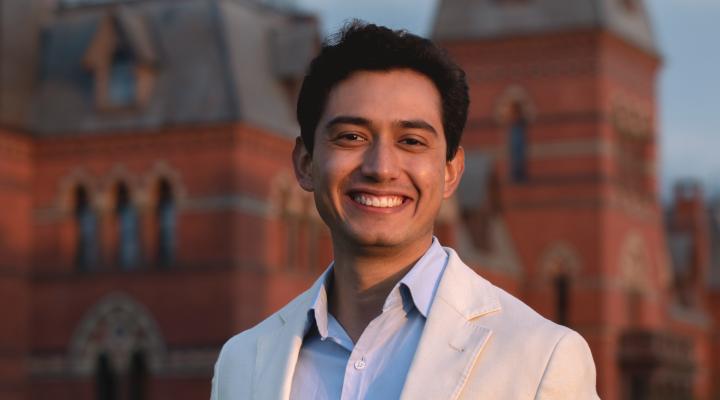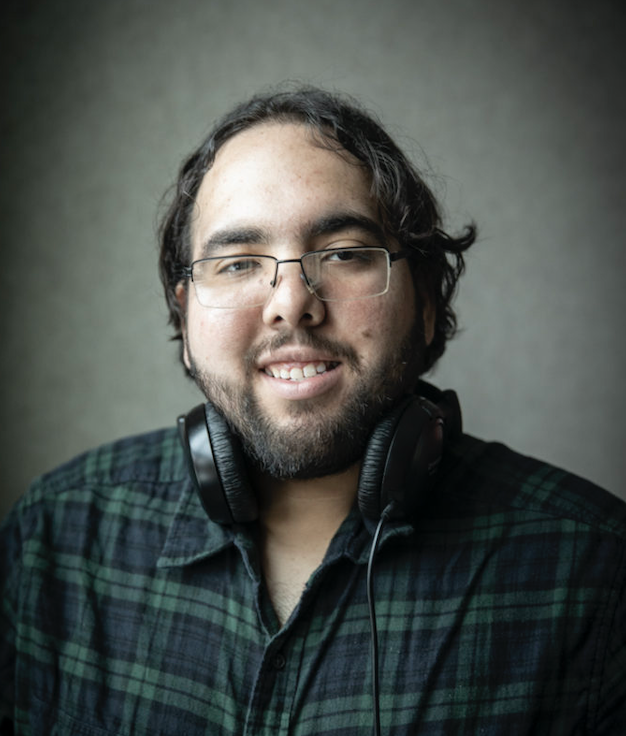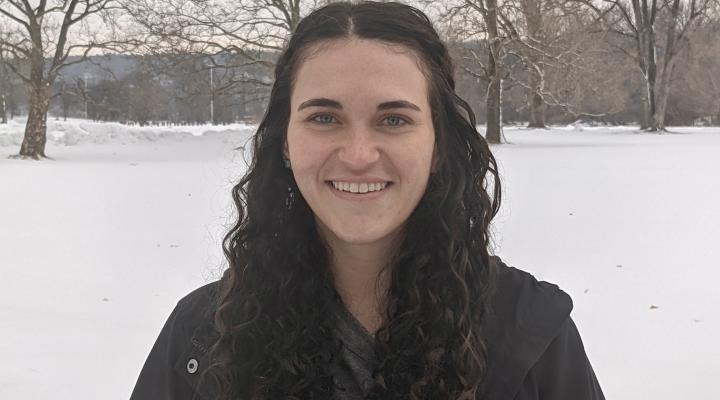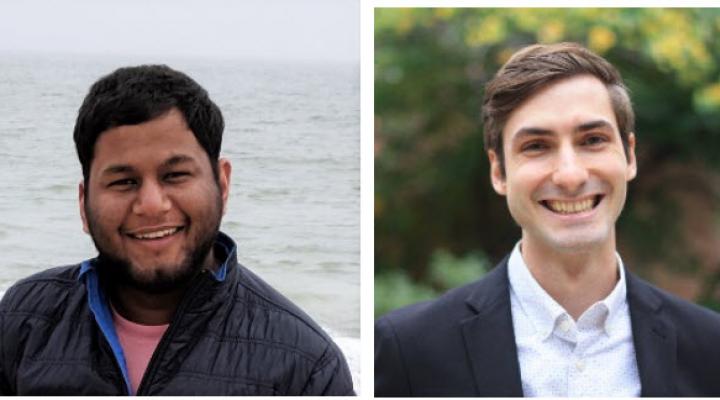Luis Nieves-Rosado is interested in how things come together. Those things could be colloidal particles in a suspension; block copolymers in the process of self-assembly; or the staff, students, and faculty comprising an academic department. No matter the context, he likes to explore connections and their underlying patterns and rules.
Nieves-Rosado is a doctoral student in the lab of Professor Fernando Escobedo in Cornell’s Robert Frederick Smith School of Chemical and Biomolecular Engineering (CBE). His research focuses on using math to simulate how simple building blocks assemble themselves into complex hierarchies.
One thread of his work involves modifying colloidal particles of gold, silver, or organic materials in order to change how these particles interact. By facilitating connections between particles, complex structures can form, and the resulting solution can sometimes exhibit interesting and useful physical, electrical, or optical properties. The other primary thread of his research looks at block copolymer self-assembly. Professor Uli Wiesner in the Department of Materials Science and Engineering (MSE) has developed an evaporative process whereby a mixture of block copolymers self-assemble into large hierarchical structures that are extremely useful as filter membranes.
In both cases, Nieves-Rosado uses math to model what is happening as particles come together.
As a child in Mayagüez, Puerto Rico Nieves-Rosado was introduced to academia through his mother, who worked as an administrative assistant at the University of Puerto Rico, Mayagüez.
“I grew up hearing her stories of faculty members, who were always the smartest people around,” Nieves-Rosado said. “And that guided me from a young age to want to be a professor.” At the same time, Nieves-Rosado had an abiding love of mathematics. “Math was always my favorite subject—everything felt like it clicked into place with math. The rules simply made sense to me.”
In high school Nieves-Rosado took a chemistry class and enjoyed the way it combined math, physics, and geometrical analysis in very interesting ways. He thought about majoring in chemistry as an undergrad, but a a faculty member steered him toward engineering, arguing it would better incorporate his interests in math. Nieves-Rosado stayed in Mayagüez for college and took that advice; he majored in chemical engineering.
During his undergraduate studies he had research opportunities in Mayagüez with Professor Ubaldo Cordoba, at Carnegie Mellon University, at Stanford (through the Leadership Alliance), and at Cal Tech as part of their Summer Undergraduate Research Fellowships (SURF) program. These experiences allowed Nieves-Rosado was able to apply math to chemical engineering questions. Just as importantly, he was exposed to what it would mean to become an academic. “These experiences gave me access to top notch facilities and to people at the forefront of the field, and they gave me a clear picture of what it means to be a faculty member and to do research for a living,” Nieves-Rosado said.
When it was time to choose a school for his doctoral studies, Nieves-Rosado’s decision was complicated by the need to find a place that would meet the academic needs of both him and his partner. When they visited Cornell, the decision became a lot easier. Cornell offered the type of research opportunity Nieves-Rosado was craving, but it also had a strong commitment to diversity and inclusion, which was essential to Nieves-Rosado and to his wife.
Now in his fifth year at Cornell, Nieves-Rosado is in a lab where he feels his academic contributions are important at a university where he feels his work building community and inclusiveness are valued. He has been a leader in the Smith School’s Diversity and Inclusion Program as well as an integral part of the university’s Office of Global Learning’s Story Circles Initiative. “In academia it is very easy to think ‘I have my goals; I have my work. I am going to go to my lab and I am going to get them done and ignore everything to the left and to the right of me,’” Nieves-Rosado said. “But those people to the left and to the right are having the same struggles you are and need supportive community the same way you do. I feel the most that I belong somewhere when I am helping the people that are there.” He is hoping to find a tenure-track faculty position after he graduates so he can continue to learn about how things come together, both in the lab and in the world.
Nieves-Rosado, who humorously describes himself as an “indoorsy kinda guy,” likes to play board games and watch anime with friends and curl up on the couch with his wife, his cat, and a good fantasy novel when he is not in the lab.






